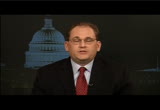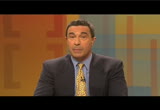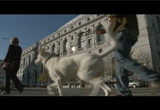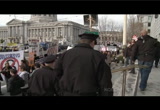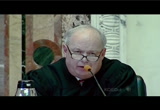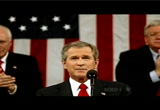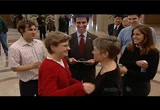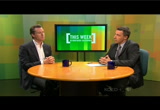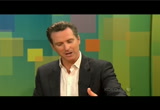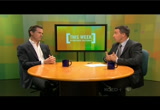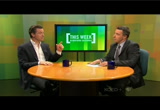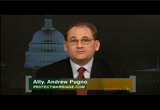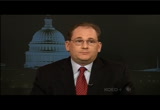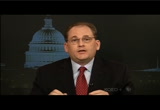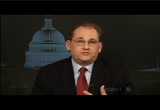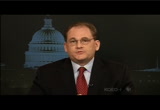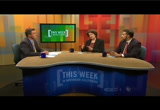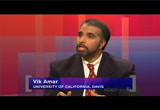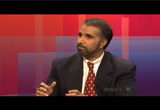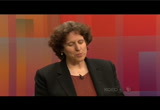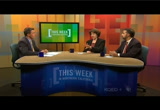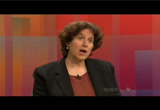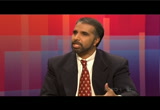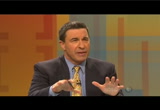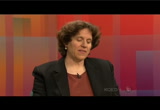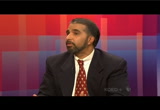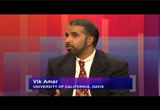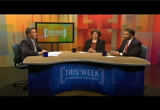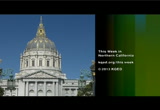tv This Week in Northern California PBS March 23, 2013 1:00pm-1:30pm PDT
1:00 pm
two closely watched u.s. supreme court cases are around the corner. for advocates and opponents for same-sex marriage. we will look at the issue as then mayor gavin newsom issued marriage licenses. we get an update from washington, d.c. for the preparations for the up coming hearings. >> they will be mindful of the limited role as judges to interpret existing law. >> plus, legal analysis on how the issues might be viewed on the highest court in the land. stay tuned for the special
1:01 pm
coverage of gay marriage before the u.s. supreme court. captioning by vitac, underwritten by fireman's fund good evening. i'm scott shafer. welcome to this week in northern california. next tuesday, more than four years after california voters approved proposition 8, the state's ban on same-sex marriage, it gets a hearing from the u.s. supreme court. it will hear arguments for the defense of marriage act known as doma. we discuss the issues before the u.s. supreme court. it's the final stop on a long
1:02 pm
and winding legal road. let's begin with a look at how it all started. the week of valentine's day, 2004, newly elected san francisco mayor gavin newsom, boldly, some said recklessly orders to grant marriage licenses to same-sex couples. >> we reignited a fundamental debate. >> scott: outside city hall, gays and lesbians lines up around the block. about 4,000 couples tied the knot. it was not to last. at the urging of then governor schwarzenegger, the supreme court stopped the marriages. over the years, it snaked its way through the judicial system. in 2008, ruling banning gay unions violated the state
1:03 pm
constitution. it cannot be denied based on it. >> so goes the rest of the nation. it's inevitable. this door's wide open now. it's going to happen. whether you like it or not. >> scott: the ruling triggered a wave of joyful weddings this time across the state. including the celebrated union of two long time lesbian activists together since the 1950s. it infuriated millions for proposition 8 to amend the california constitution and restore marriage to opposite-sex couples only. on the same night californians voted barack obama in office,
1:04 pm
they ovgot this vote back. >> they created the judiciary and legislature and they control the constitution. they decided that marriage should be between a man and woman. >> scott: supporters of gay marriage asked the california supreme court to strike down the newly enacted proposition 8, but in 2009, the state court upheld it. that was the end in state court, but marked an avenue in federal court. in 2010, federal judge walker struck it down saying it violated the equal protection under the law. in a split decision, a three-judge panel of the circuit court of appeals upheld that ruling last february. setting the stage before the u.s. supreme court. this past valentine's day, gay couples demanded marriage licenses at san francisco city hall as they have every year
1:05 pm
since 2004. they were turned away. >> it affects us in so many ways in our every day life. what we want is to be treated fairly. >> scott: i spoke with lieutenant governor gavin newsom recently about what compelled him to take a leading role in the gay marriage debate nine years ago. >> thanks for having me. >> scott: take us back to 2004. the marriage licenses began to be issued in san francisco. you had just gotten into office. what got into you? >> i went to the state of the union. nancy pelosi made a terrible mistake by giving me her husband's ticket to watch the state of the union. i was listening to the issues of the day. abstinence and drug testing. he would fulfill his private commitments now made public to ban same-sex marriage. it occurred to me at that moment
1:06 pm
that we had to respond as mayor of san francisco, it was an obligation. >> scott: you just decided, i think it was a thursday or friday and people started lining up. it seems to have come on suddenly. what conversation did you have with the city attorney and attorney general? >> this was done in a deliberate way. they went through a thoughtful process. every memo was done in a legal case. we had folks from nclr. we had private attorneys. i'll say respectfully. it was a bit of friction within city hall at the city attorney's office. we talked about what we can do. we organized the principle effort. we knew this would lead to litigation. we wanted to put a human face on it. >> scott: there were a lot of critics.
1:07 pm
schwarzenegger talked about chaos in the streets on "meet the press." barney frank, the openly gay congress member saying it was diverting the attention. of all of the criticism you got, what hurt the most? >> the democratic criticism and all my friends giving me the same advice. what advice would you give as mayor? do what you think is right. all of a sudden they say wait a second. you need to ask for permission. there is a process. that was the issue with frank and others. they expected permission. somehow who are you? you are new to the scene. we have been at this for decades. and i'm straight. that is an issue. who gives this guy the right to speak for us? the interesting thing, a lot of the members of the gay community and organizations, they were not ready for the fight. they were not thinking of the fight. in 2004, we were barely entering into the debate of civil unions
1:08 pm
having gone through that half decade around domestic partnerships. gay marriage was not on the radar screen in the mayoral debates. it was a tough issue for a lot of folks. >> scott: you mentioned george w. bush. he won in 2004. it came down to ohio which had a gay marriage ban on the ballot. the day after the election, senator dianne feinstein said it was too much. people were not ready for it. >> i get it. i get it. now with that, the dust settled and they did as they do with the exit polls. they analyze. there were ten issues. social issues was number five behind other issues. interestingly, it broke both ways. enthusiastic for bush and enthusiastic for kerry. >> scott: fast forward to 2007 and 2008.
1:09 pm
senator barack obama runs for president and comes to san francisco to raise money. word was he did not want to be photographed with you. was that true? >> willie brown and myself were doing the fund-raisers for him. one at a restaurant. he had strong opinions. a lot of folks had strong opinions. >> scott: was he worried? >> everyone was worried. i had that brief moment where the new person and the rising star and i was going to go to boston during the convention and speak. all of a sudden, calling up and i said i get it. all these folks that were surrounding me, moved aside and to your point, that was more hurtful than the predictable position of schwarzenegger. >> scott: fast forward to 2008, supreme court says gay marriage is okay. you hold a press conference and said whether you like it or not, gay marriage is coming. would you have done that differently? >> of course.
1:10 pm
it wasn't my press conference. it was the city attorney's. frankly, i did not anticipate winning. i was stunned. i sat there with the energy and intensity of what this meant to so many people. the city attorney is having a press conference. come down stairs. i got caught up in that moment. i was talking about the history of the rights movement. if you like it or not, over the objections of the majority, we fight for the minorities. the rift went there. it was used effectively. >> scott: living through history. >> remarkable. we ultimately as dr. king said, we eventually get it right. in this respect, the words were wrong. they were inartful. the majority is not necessarily there. i think now a majority of americans are on same-sex marriage. >> scott: thanks so much. >> thanks for having me. >> scott: the court of public opinion is shifting in favor of marriage equality.
1:11 pm
a recent poll found that 61% of californians now support same-sex marriage. 32% oppose it. politicians now on both sides of the aisle speak out in gay marriage. i spoke with andrew pugno from washington, d.c. he is part of the legal team defending proposition 8. andy pugno, welcome. >> good evening. >> scott: it's been nine years since gavin newsom issued marriage licenses at city hall. a lot has changed. the shift is to the support for gay marriage. we have seen prominent republicans come out in support of it. how does that change your job next week before the supreme court? >> really, it doesn't and shouldn't effect what is a legal case that we are looking at interpretation of the u.s. constitution. things like public opinion polls and the political pressure that could be brought to bear really
1:12 pm
are not -- that's just not for a legal case like this. >> scott: you think the justices are more or less immune to that? >> i think the justices are used to being sucked into a political debate. their limited role as judges to interpret law. >> scott: what is the thing you and your team have to make sure the justices hear on tuesday? >> one of the most important things is the justices realize this is not just an issue of marriage, but states' rights and federalism. it would be unfortunate to have same-sex marriage imposed. marriage redefined for all 50 states by the intervention of the federal courts, thus, ending a debate that continues to go on today throughout the country. i think that is probably the most important thing the courts
1:13 pm
should think about. >> scott: the essential element of your argument in the legal briefs is marriage is a special right and reserved for opposite-sex couples to create the link between the biological offspring. what is your point about extending that right to gay and lesbian couples who have kids, why would that weaken the institution of marriage if you just allowed everyone to have access to it? >> that is simply the wrong legal question. not what harm would it cause, but whether or not it would serve the purpose of marriage. the purpose of marriage is to bind men and women together and increase the likelihood that children born of opposite-sex couples would be raised by the mother and father that brought them into this world. redefining marriage to include same-sex couples doesn't promote that purpose. >> scott: how does that undermine it? >> it could undermine it because
1:14 pm
it severs the link between man and woman and rearing of children by the mothers and fathers that bring them into this world. by severing that link, it would und undermine and serve the detriment of children. >> scott: this week, the academy of pediatrics said gay marriage would be the best thing for children. what would you say to that? >> i would point out in the experts of the plaintiffs in this case in the trial that was held, they all had to admit that first of all, redefining marriage would work a substantial change on the institution. second of all, no one is capable of predicting with any certainty how redefining marriage would affect society in general.
1:15 pm
>> scott: you think the stakes on tuesday are what? >> i think the stakes are high. you are talking about not just the institution of marriage, but also kind of a larger question of are we going to have a judiciary that creates new law because of essentially substituting their judgment for the judgment of the people who through the democratic process should be making these important policy decisions. >> scott: if prop 8 is struck down as the lower courts have done, do you feel that is the end of the road for your group in california or is there another avenue to pursue? >> if the supreme court decides there is a hidden invisible right to same-sex marriage in the constitution, that would spell an end to the same-sex marriage in california. >> scott: andy, thanks so much. >> no trouble. thank you. >> scott: joining me now to
1:16 pm
discuss the legal issues is uc davis professor vik amar and jane schacter from stanford law school. welcome. finally here. jane, let me begin with you. both of the cases, doma and prop 8 have to do with same-sex marriage. they are different. explain. >> the defense of marriage act called doma was enacted in 1996. proposition 8 is a california measure enacted in 2008. both are part of what we think as a backlash to early efforts to legalize same-sex marriage. those go back further than gavin newsom in 1993 when hawaii looked like it would legalize same-sex marriage. only when hawaii looked like it would do that, congress passed doma. the section of doma that is argued next week before the
1:17 pm
supreme court says the federal government will not recognize in the many programs a same-sex marriage that is recognized by the state. in terms of estate tax and benefits, some 1,000 programs. if a couple is legally married in the eyes of its is state, it is not married in the eyes of the federal government. that is a new policy for the federal government. prop 8 only speaks to california and bans same-sex marriage in california. >> scott: vik, they are different, but intersect. we will learn about what the justices feel about doma on tuesday when they ask questions about prop 8. what are the legal even tantangs here? >> jane is correct. the supreme court could strike one down without affecting the other. their way is to do that. both at the procedural level and
1:18 pm
substantive lae substantive level, there are comm commonalities. how do we defend a statute, the president and attorney general and governor, decline to defend? in both of these, the elected executive officials declined. that is a common question. on marriage, at base, the cases ask a fundamental question of protection under the 14th amendment. how skeptical should the court be on the laws that discrimination on sexual orientation. >> scott: they could strike down doma and not allow anybody to get married. >> if they strike doma down on certain grounds, doma violates basic rights of equality, that leaves a lot that ban same-sex marriage dangling. >> scott: there is a question of standing and both cases asked both sides to argue why they have the right to be there.
1:19 pm
how big a deal is that? is that a sleeper issue? >> it is a big issue. one of the cues we have of that is the supreme court asked for briefing on that question and is allowing time for separate oral argument on that question in both cases. i think the issue of standing in relation to prop 8 is an interesting one. as vik said, the attorney general and governor from the get-go have not defended prop 8. the question is whether these proponents of prop 8 represented by mr. pugno we heard earlier have the right to do that. essentially, the ballots are private citizens. they are not people elected to make litigation decisions. you have a situation where you have private parties who might be able to make litigation decisions and have no accountability for that. nor any delegation of authority to them. on the other hand, if those
1:20 pm
proponents don't have standing, those officials have the run around. you have the two competing -- >> it was initially designed to be a check on elected officials who may not be responsive to the people. >> scott: you can write into the proposition that if no one defends it, we can. >> it would be a different case had the people of california, the same night they passed prop 8, formally deputized these folks. when you write that into a measure, if this passes and the attorney general doesn't defend, they have the standing. you can answer the difficult questions about accountability. how many years can they defend? >> there have been initiatives in california where it was specifically written in. the absence of the language may be significant in the case. >> the initiative passed in 2008 that provided for redistricting. there was a provision that dealt
1:21 pm
with the possibility. >> scott: they knew they would not defend that. a lot of people are comparing this issue of same-sex marriage with interracial marriage. in california, the ban was struck down in 1947. it took the u.s. supreme court 20 more years. 1967. this is a good analogy? what are the strengths and weaknesses? >> one interesting piece of that question is when the california supreme court enacted in 1948, there was no public outcry at all. no backlash. a different time historically. a lot of the same law and precedence are in play. one of the things that is different is whenever race is involved in a constitutional challenge, the court looks at that policy of drawing a line based on race with maximal
1:22 pm
skepticism. we will look to see if this is in order when sexual orientation is the issue. >> the 13th and 14th and 15th amendments and the 14th houses this equal protection idea. they were about race. >> scott: since the civil war. >> right. the historical case. there are parallels between these kinds of discrimination. here is another difference. in 1967 when the supreme court in loving versus virginia banned gay marriage, in that time, only 16 states retained such a ban. the previous decade plus, 14 states moved away from the bans. we still have a situation where 40 states prohibit same-sex marriage. that may change in four or five years. that is different with the mainstream. >> i would say one of the things that is interesting is how fast
1:23 pm
public opinion is moving. in the case of interracial marriage in 1967, there were polls showing lower levels of support when the supreme court acted than there are today. there is the fact that many states and one reason is a big regional divide. on the east coast and west coast, there is more sympathy than in the south and middle of the country. >> scott: that goes if they strike down prop 8, they have several options if they strike it down. more or less it is california only option or -- >> there are certain features of prop 8 that are different for other states. >> scott: there is another way they could do it that could affect other states. there is the 50 states. everyone has a fundamental right
1:24 pm
to marriage. >> the ninth circuit when it struck down prop 8 tried to craft an opinion that was particular to prop 8 to keep the supreme court at bay. the fact at least four justices thought they should take the case, suggested that was not an entirely successful effort. i don't think the court is really anxious to weigh into this thicket. something is trying to stack the deck all together by finding they don't have standing may be attractive. >> the interesting thing here for me is that when you pair doma with -- the federal policy -- with the very california specific ruling about prop 8 that the appellate court wrote, really just for california, that ruling, if the supreme court were to strike down doma and prop 8, that would be an incremental step relative to the 50-state solution. >> if they don't strike down
1:25 pm
doma on some broad ground. >> nobody as you pointed out, scott, nobody will be able to get newly married of same-sex couples if dome an mafalls. justice kennedy was interesting with the facts placed before him. >> scott: there is the fact that he could be the key vote. >> when i listen to the argument tapes, i will want to see what justices kagan and justice roberts and briar. they could be instrumentalist bellwethers. they might be ready to take this step. >> scott: step of going beyond california? >> let's not forget invalidating the law in the biggest and most important state in the country on grounds that you try to limit to california, but have a way of
1:26 pm
creeping out is not a trivial thing. >> scott: we live in the bubble here in the bay area and to prop 8. how big a deal is it? vik, we shouldn't assume that they will strike prop 8 down. >> we shouldn't assume that. it would be the first federal ruling in favor of same-sex marriage if they were to do it. the california specific quality is of an opinion that might be written is under cut by the fact that california is often a bellwether for other states. >> scott, you mentioned national opinion polls. it is very regionalized. it is not as if there will be same-sex marriage in all 50 states anytime soon, but we still might have significant change in the next three or four or five years such the court might want to wait. if it has means to push it off for a few years, the back drop against which it decides the
1:27 pm
question may be different four years from now. >> scott: what will you listen for? >> i'll listen for what justice kennedy has to say and listening for what they think about the rapid change in public opinion and the fact the political process is engaging in the issue. i think that might be a reason why the court stays out of it. if the court is not talking about that, it might be affected by it in the sense that they may view the issue differently today than ten years ago. >> scott: we will get the audio tapes three hours after that. people are lining up already. on thursday, they were lining up to get into the court. we look forward to that and more to talk about. jane schacter from stanford. vik amar from uc davis. thank you for coming in. thanks for everyone for joining me tonight. i'll cover the hearings from washington next week. you can hear my reports on radio and find the rest of the
1:28 pm
87 Views
Uploaded by TV Archive on

 Live Music Archive
Live Music Archive Librivox Free Audio
Librivox Free Audio Metropolitan Museum
Metropolitan Museum Cleveland Museum of Art
Cleveland Museum of Art Internet Arcade
Internet Arcade Console Living Room
Console Living Room Books to Borrow
Books to Borrow Open Library
Open Library TV News
TV News Understanding 9/11
Understanding 9/11
